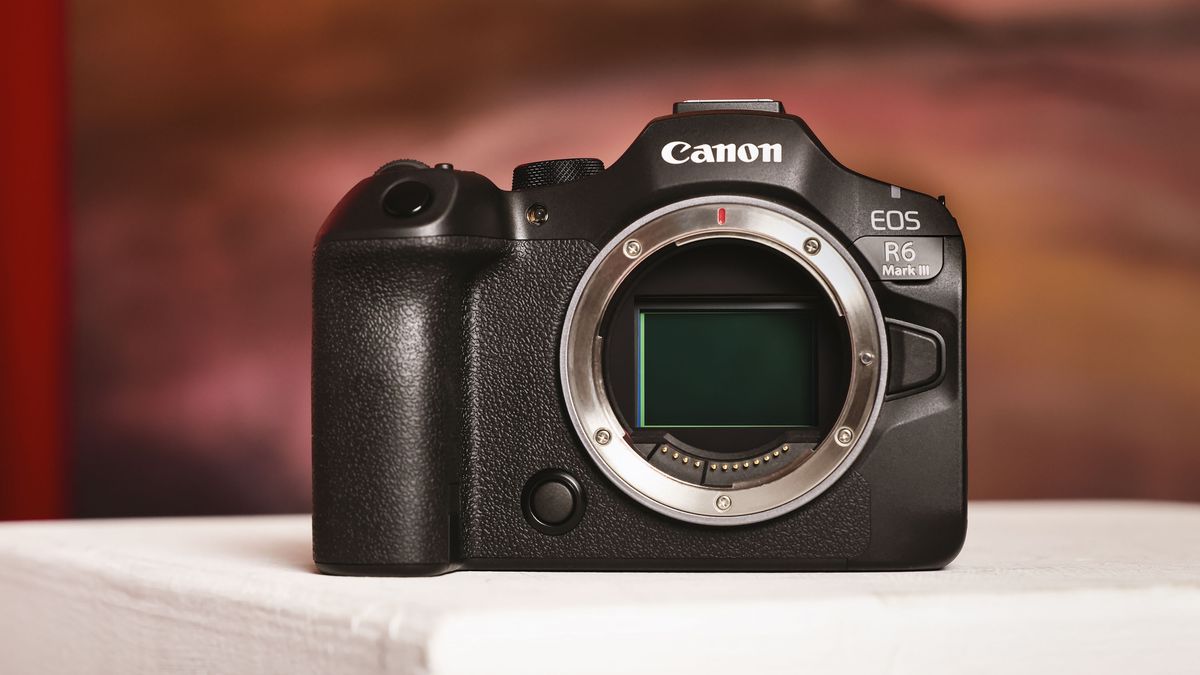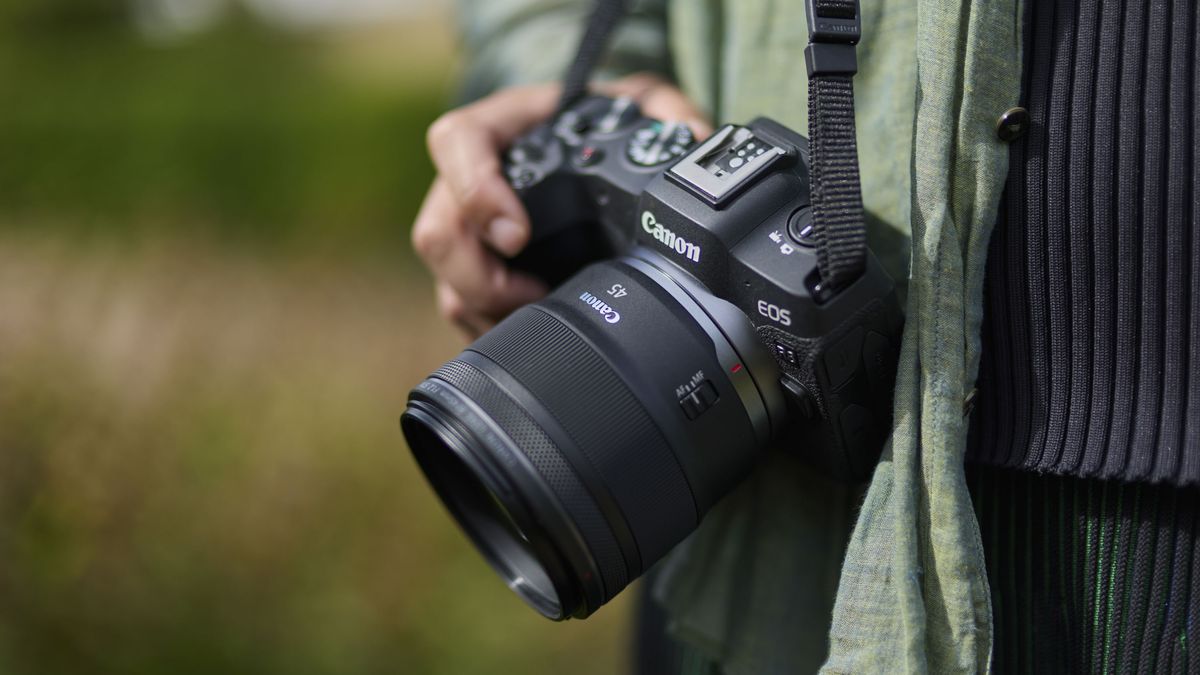The turing test in reverse
From music videos to "Are you a prompt?" stunts, "real" videos are presenting as AI
Of course I'm an AI creation! Why would you even doubt it? Credit: Getty Images
Since Google released its Veo 3 AI model last week, social media users have been having fun with its ability to quickly generate highly realistic eight-second clips complete with sound and lip-synced dialogue. TikTok's algorithm has been serving me plenty of Veo-generated videos featuring impossible challenges, fake news reports, and even surreal short narrative films, to name just a few popular archetypes.
However, among all the AI-generated video experiments spreading around, I've also noticed a surprising counter-trend on my TikTok feed. Amid all the videos of Veo-generated avatars pretending to be real people, there are now also a bunch of videos of real people pretending to be Veo-generated avatars.
“This has to be real. There’s no way it's AI.”
I stumbled on this trend when the TikTok algorithm fed me this video topped with the extra-large caption "Google VEO 3 THIS IS 100% AI." As I watched and listened to the purported AI-generated band that appeared to be playing in the crowded corner of someone's living room, I read the caption containing the supposed prompt that had generated the clip: "a band of brothers with beards playing rock music in 6/8 with an accordion."
@kongosmusicWe are so cooked. This took 3 mins to generate. Simple prompt: “a band of brothers playing rock music in 6/8 with an accordion”♬ original sound - KONGOSAfter a few seconds of taking those captions at face value, something started to feel a little off. After a few more seconds, I finally noticed the video was posted by Kongos, an indie band that you might recognize from their minor 2012 hit "Come With Me Now." And after a little digging, I discovered the band in the video was actually just Kongos, and the tune was a 9-year-old song that the band had dressed up as an AI creation to get attention.
Here's the sad thing: It worked! Without the "Look what Veo 3 did!" hook, I might have quickly scrolled by this video before I took the time to listen to the (pretty good!) song. The novel AI angle made me stop just long enough to pay attention to a Kongos song for the first time in over a decade.
Kongos isn't the only musical act trying to grab attention by claiming their real performances are AI creations. Darden Bela posted that Veo 3 had "created a realistic AI music video" over a clip from what is actually a 2-year-old music video with some unremarkable special effects. Rapper GameBoi Pat dressed up an 11-month-old song with a new TikTok clip captioned "Google's Veo 3 created a realistic sounding rapper... This has to be real. There's no way it's AI" (that last part is true, at least). I could go on, but you get the idea.
@gameboi_pat This has got to be real. There’s no way it’s AI 😩 #google #veo3 #googleveo3 #AI #prompts #areweprompts? ♬ original sound - GameBoi_patI know it's tough to get noticed on TikTok, and that creators will go to great lengths to gain attention from the fickle algorithm. Still, there's something more than a little off-putting about flesh-and-blood musicians pretending to be AI creations just to make social media users pause their scrolling for a few extra seconds before they catch on to the joke (or don't, based on some of the comments).
The whole thing evokes last year's stunt where a couple of podcast hosts released a posthumous "AI-generated" George Carlin routine before admitting that it had been written by a human after legal threats started flying. As an attention-grabbing stunt, the conceit still works. You want AI-generated content? I can pretend to be that!
Are we just prompts?
Some of the most existentially troubling Veo-generated videos floating around TikTok these days center around a gag known as "the prompt theory." These clips focus on various AI-generated people reacting to the idea that they are "just prompts" with various levels of skepticism, fear, or even conspiratorial paranoia.
On the other side of that gag, some humans are making joke videos playing off the idea that they're merely prompts. RedondoKid used the conceit in a basketball trick shot video, saying "of course I'm going to make this. This is AI, you put that I'm going to make this in the prompt." User thisisamurica thanked his faux prompters for putting him in "a world with such delicious food" before theatrically choking on a forkful of meat. And comedian Drake Cummings developed TikTok skits pretending that it was actually AI video prompts forcing him to indulge in vices like shots of alcohol or online gambling ("Goolgle’s [sic] New A.I. Veo 3 is at it again!! When will the prompts end?!" Cummings jokes in the caption).
Beyond the obvious jokes, though, I've also seen a growing trend of TikTok creators approaching friends or strangers and asking them to react to the idea that "we're all just prompts." The reactions run the gamut from "get the fuck away from me" to "I blame that [prompter], I now have to pay taxes" to solipsistic philosophical musings from convenience store employees.
I'm loath to call this a full-blown TikTok trend based on a few stray examples. Still, these attempts to exploit the confusion between real and AI-generated video are interesting to see. As one commenter on an "Are you a prompt?" ambush video put it: "New trend: Do normal videos and write 'Google Veo 3' on top of the video."
Which one is real?
The best Veo-related TikTok engagement hack I've stumbled on so far, though, might be the videos that show multiple short clips and ask the viewer to decide which are real and which are fake. One video I stumbled on shows an increasing number of "Veo 3 Goth Girls" across four clips, challenging in the caption that "one of these videos is real... can you guess which one?" In another example, two similar sets of kids are shown hanging out in cars while the caption asks, "Are you able to identify which scene is real and which one is from veo3?"
@spongibobbu2 One of these videos is real… can you guess which one? #veo3 ♬ original sound - JettAfter watching both of these videos on loop a few times, I'm relatively (but not entirely) convinced that every single clip in them is a Veo creation. The fact that I watched these videos multiple times shows how effective the "Real or Veo" challenge framing is at grabbing my attention. Additionally, I'm still not 100 percent confident in my assessments, which is a testament to just how good Google's new model is at creating convincing videos.
There are still some telltale signs for distinguishing a real video from a Veo creation, though. For one, Veo clips are still limited to just eight seconds, so any video that runs longer (without an apparent change in camera angle) is almost certainly not generated by Google's AI. Looking back at a creator's other videos can also provide some clues—if the same person was appearing in "normal" videos two weeks ago, it's unlikely they would be appearing in Veo creations suddenly.
There's also a subtle but distinctive style to most Veo creations that can distinguish them from the kind of candid handheld smartphone videos that usually fill TikTok. The lighting in a Veo video tends to be too bright, the camera movements a bit too smooth, and the edges of people and objects a little too polished. After you watch enough "genuine" Veo creations, you can start to pick out the patterns.
Regardless, TikTokers trying to pass off real videos as fakes—even as a joke or engagement hack—is a recognition that video sites are now deep in the "deep doubt" era, where you have to be extra skeptical of even legitimate-looking video footage. And the mere existence of convincing AI fakes makes it easier than ever to claim real events captured on video didn't really happen, a problem that political scientists call the liar's dividend. We saw this when then-candidate Trump accused Democratic nominee Kamala Harris of "A.I.'d" crowds in real photos of her Detroit airport rally.
For now, TikTokers of all stripes are having fun playing with that idea to gain social media attention. In the long term, though, the implications for discerning truth from reality are more troubling.
Kyle Orland has been the Senior Gaming Editor at Ars Technica since 2012, writing primarily about the business, tech, and culture behind video games. He has journalism and computer science degrees from University of Maryland. He once wrote a whole book about Minesweeper.










 English (US) ·
English (US) ·